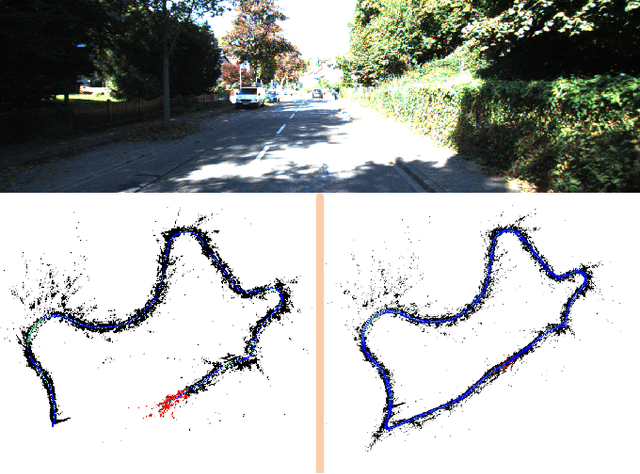Dual-SLAM: A framework for robust single camera navigation
Paper and Code
Sep 23, 2020



SLAM (Simultaneous Localization And Mapping) seeks to provide a moving agent with real-time self-localization. To achieve real-time speed, SLAM incrementally propagates position estimates. This makes SLAM fast but also makes it vulnerable to local pose estimation failures. As local pose estimation is ill-conditioned, local pose estimation failures happen regularly, making the overall SLAM system brittle. This paper attempts to correct this problem. We note that while local pose estimation is ill-conditioned, pose estimation over longer sequences is well-conditioned. Thus, local pose estimation errors eventually manifest themselves as mapping inconsistencies. When this occurs, we save the current map and activate two new SLAM threads. One processes incoming frames to create a new map and the other, recovery thread, backtracks to link new and old maps together. This creates a Dual-SLAM framework that maintains real-time performance while being robust to local pose estimation failures. Evaluation on benchmark datasets shows Dual-SLAM can reduce failures by a dramatic $88\%$.
 Add to Chrome
Add to Chrome Add to Firefox
Add to Firefox Add to Edge
Add to Edge